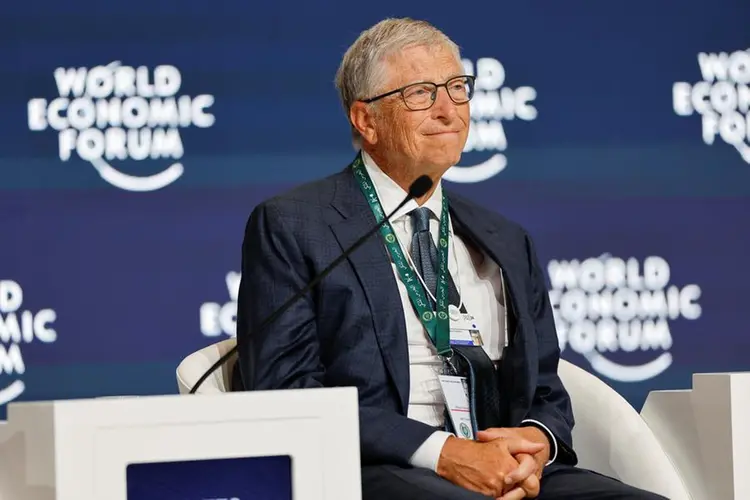
Edson Baraukwa | Africa Guardian
Each year, the Bill & Melinda Gates Foundation allocates around $8.4 billion globally, with plans to increase this to $9 billion in the coming year, making it the largest private philanthropic spender. During Bill Gates’ 2022 visit to Nairobi, he pledged $7 billion to tackle poverty, hunger, and inequality across Africa. This funding supports a broad range of initiatives. So, what are the current focus areas, and how are the efforts evolving?
Focus Areas of the Foundation’s Funding
The Gates Foundation’s core areas of focus remain consistent. Health, particularly the eradication of diseases like polio, continues to receive the largest portion of the funding. Efforts to eliminate wild polio in Pakistan and Afghanistan, as well as address vaccine-derived polio in Africa, are key priorities. In addition to polio, the foundation invests in research and development for diseases like tuberculosis, HIV, and malaria, where there is often little private sector interest. For example, the foundation is backing M72, a promising tuberculosis vaccine that could be the first new TB vaccine in over 50 years, crucial for Africa and India where the disease is prevalent.
Maternal and child health is another focus, with initiatives aimed at improving nutrition, addressing postpartum hemorrhage, and expanding family planning. Additionally, strengthening health systems across the continent ensures that these interventions can be accessed and integrated effectively. The foundation works closely with Gavi to improve immunization coverage in Africa, a major priority.
Beyond health, the foundation invests in agriculture, women’s economic empowerment, and inclusive finance to enhance access for women and smallholder farmers. As part of this commitment, a significant portion of the foundation’s funding directly benefits African organizations, and support is steadily increasing.
Tackling Malnutrition in Africa
Malnutrition is a critical issue in Africa, with chronic malnutrition affecting roughly 30% of children, which harms their development and future potential. The foundation’s approach to combating malnutrition is multifaceted. It focuses on boosting agricultural productivity, improving food availability, educating families about diversified diets, and strengthening the health sector to detect and treat malnutrition early. For instance, in Nigeria, the foundation supports food producers to fortify basic foods, thereby improving nutrition at minimal cost to producers.
Maternal nutrition is another priority. Many pregnant women only receive iron and folic acid supplements, yet other micronutrients are essential for healthy pregnancies. The foundation works with governments and UNICEF to expand the range of micronutrients available to expectant mothers.
Overcoming Resistance to Science and Technology
Addressing misinformation around science and technology, particularly vaccines and genetically modified organisms (GMOs), is another challenge. The foundation works with local scientists who are trusted within their communities to promote science-based solutions. In East Africa, for example, much of the agricultural research is led by local institutions like Kenya’s Agricultural and Livestock Research Organization. When farmers see tangible benefits, such as higher crop yields, they are more likely to adopt new technologies.
Supporting Local Vaccine and Medicine Production
The push for local vaccine and medicine production in Africa is both timely and crucial. While Africa consumes a significant portion of vaccines, it produces less than 3% locally. The COVID-19 pandemic underscored the risks of relying on external sources. The Gates Foundation is collaborating with institutions like the Institut Pasteur de Dakar and Revital in Kenya to build local manufacturing capacity, starting with essential products like vaccines and syringes. This support has already helped shorten lead times and reduce dependence on imports.
Expanding the Foundation’s Regional Presence in Nairobi
To further accelerate its impact, the Gates Foundation is opening a new regional office in Nairobi, Kenya. This office will serve as a hub for East Africa, complementing existing offices in Nigeria and Ethiopia. Nairobi was chosen for its vibrant ecosystem, technical expertise, government support, and established infrastructure, including strong connections with UN agencies and Kenya Airways. The office will enable the foundation to deepen its engagement with local governments, grantees, and partners to support the region’s development and contribute directly to Kenya’s growth.
Special Privileges for the Nairobi Office
Regarding special privileges, the foundation operates within Kenya’s legal framework, ensuring compliance with all local regulations. While Kenya’s regulatory environment and supportive policies influenced the decision to open the Nairobi office, no special privileges or immunities were sought or granted. The office will benefit from Kenya’s excellent infrastructure, schools, and healthcare, making it an ideal location to expand the foundation’s regional efforts.
By expanding its footprint in Africa, the Bill & Melinda Gates Foundation aims to strengthen its commitment to tackling some of the continent’s most pressing challenges and continue supporting sustainable development across the region.
___
